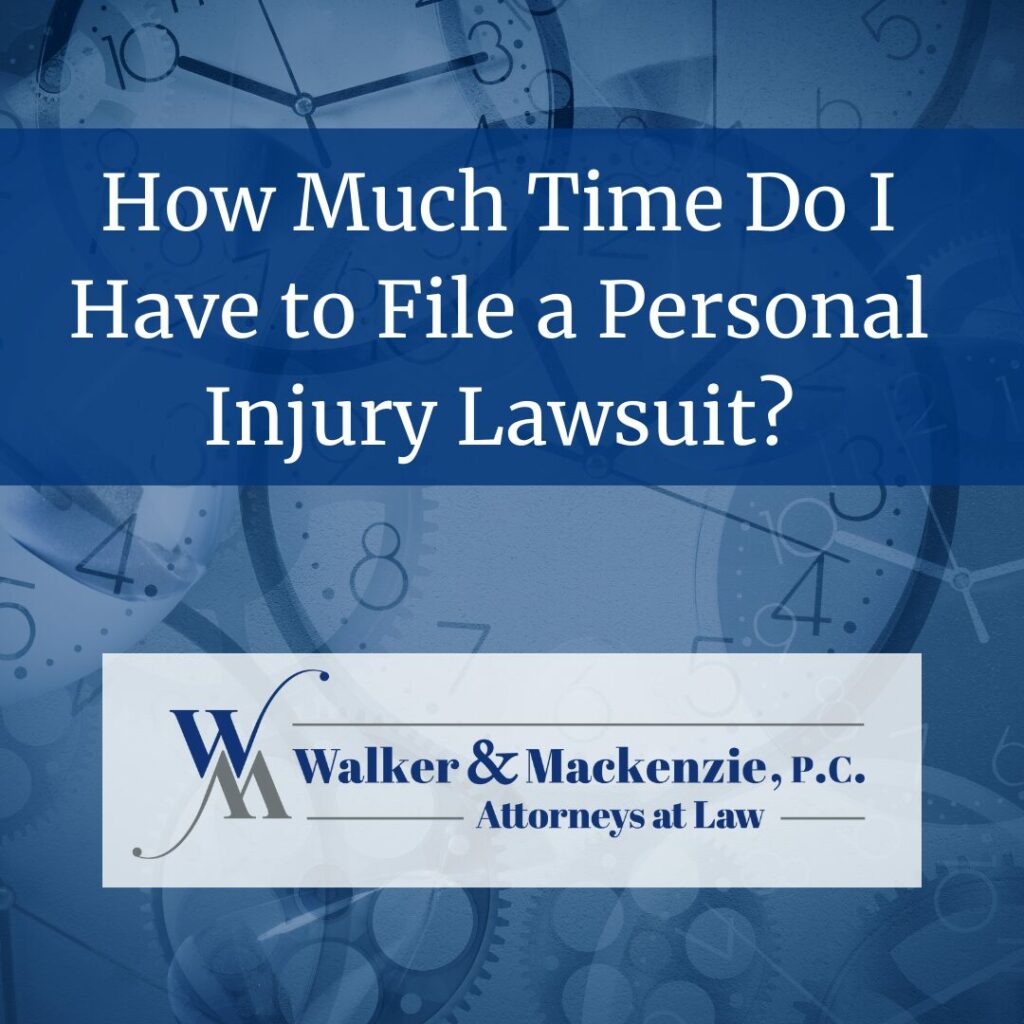How much time do I have to file a personal injury lawsuit?

What is the Statute of Limitations?
The statute of limitations refers to the time period within which a person must file a lawsuit or forever lose the right to do so. It serves as a legal deadline and varies depending on the type of claim and the jurisdiction in which the claim is filed. The purpose of the statute of limitations is to ensure that cases are resolved in a timely manner, preserving the integrity of evidence and protecting defendants from unfounded claims after a significant amount of time has passed.
Understanding the Statute of Limitations for Personal Injury Claims in New York
In New York, the statute of limitations for personal injury claims can vary depending on the type of injury and the circumstances surrounding the case. Here are some common statutes of limitations for personal injury claims in New York:
- Personal Injury (Negligence, including car accidents, slip and falls, trip and falls, dog bite accident, construction site accidents, etc.): The general statute of limitations for personal injury claims arising from negligence is three years from the date of the incident.
- Medical Malpractice: For medical malpractice cases, the statute of limitations is two and a half years from the date of the alleged malpractice or from the end of continuous treatment provided by the liable/at fault healthcare professional unless medical malpractice involves medical professionals who are affiliated with a municipality (i.e. Stony Brook University, Nassau University Medical Center). If medical malpractice involves a healthcare professional who is affiliated with a municipality, then those cases have a much shorter statute of limitations. See “Municipal Claims” below.
- Wrongful Death: In cases involving the wrongful death of an individual, the statute of limitations is generally two years from the date of death.
- Product Liability: The statute of limitations on most product liability claims is three years from the date of the injury.
- Municipal Claims: If the injury occurred due to the negligence of a municipal entity or its employee, such as a slip and fall on a public sidewalk and a car accident with a government vehicle, there exist additional notice requirements and a shorter time limit to file a claim. In those situations, a Notice of Claim must be filed within 90 days of the incident, and a lawsuit must be filed within one year and 90 days of the date of the incident.
Certain circumstances may pause or extend the statute of limitations. This is known as tolling. For example, if the injured party is a minor (under the age of 18), the statue of limitations may be tolled until the minor turns 18 years old. This means that the statute of limitations will begin to run on the day the injured minor turns 18 years old and continue to run for the appropriate applicable time period.
It is essential to consult with an experienced personal injury attorney to determine the specific statute of limitations applicable to your case. Keep in mind that failing to file a claim within the applicable time limit can result in the permanent loss of your right to seek compensation.
Importance of Filing within the Statute of Limitations
Failing to file a personal injury claim within the statute of limitations can have serious consequences. If the deadline passes, the injured party may lose their right to seek compensation for their injuries forever. The defendant can use the expiration of the statute of limitations as a defense and the court will likely dismiss the case. Therefore, it is crucial to be aware of the applicable statute of limitations and take prompt legal action to protect your rights.
You may wonder: how do I find the best personal injury attorney near me to go over all of the aspects of my case? The answer is simple: at Walker & Mackenzie, P.C., our experienced personal injury attorneys near you can assess all the relevant aspects of your claim and adequately advise you as to the applicable statute of limitations. It is advisable not to wait until the last day of the expiration of the statute of limitations to contact Walker & Mackenzie, P.C. because to formally commence a lawsuit, your personal injury attorney will require some time to gather all the relevant evidence, collect your medical records and, if necessary, consult with experts. Therefore, call Walker & Mackenzie, P.C. right away so that your rights are properly protected.
Contact the experienced personal injury attorneys at Walker & Mackenzie, P.C. today at (631)791-5090 for a free, no obligation, consultation to review all of the legal remedies available to you.